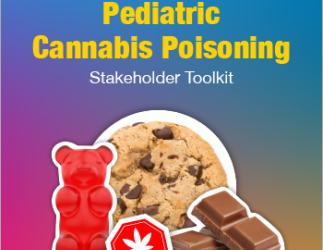Heading
Demographic Trends for Cannabis Use
Cannabis use is slowly on the rise in Canada, according to the 2022 Canadian Cannabis Survey. Use among the general population (aged 16 years and older) increased from 25% in 2021 to 27% in 2022. Provincial and territorial estimates ranged from 18% to 41%. Cannabis use was highest among people aged 20–24 years (50%), followed by those aged 16–19 years (37%) and those aged 25 years and older (25%). The biggest change in users occurred in the 25 years and older group, which increased from 22% in 2021 to 25% in 2022.
27%
50%
25%
What is Cannabis?
Cannabis is a plant that is known for its psychoactive properties. There are various cannabis products, including plant materials, cannabis oils, concentrated extracts, edibles, tinctures and creams. These products are used for their physical and cognitive effects and for medical and nonmedical purposes. People usually smoke cannabis, but they can also consume it in other ways, such as vaporization (vaping) and in edibles.
Cannabis flowers secrete more than 100 different chemical compounds, known as cannabinoids. When consumed, these compounds bind to cell receptors in the body and change the way these cells communicate with one another. Two of the best-known cannabinoids are THC and CBD:
- THC (delta-9-tetrahydrocannabinol) is the primary psychoactive component of cannabis and is responsible for the high that individuals experience.
- CBD (cannabidiol) does not produce a high, but it can cause drowsiness. It is being studied for use in medical applications, such as relieving pain, nausea and symptoms of other chronic conditions.
Heading
Featured Resource: Pediatric Cannabis Poisoning Stakeholder Toolkit
Presents key facts, social media graphics and messaging to help organizations raise awareness of pediatric cannabis poisoning through public education campaigns. The materials convey the important message of keeping cannabis edibles safely stored and out of reach from children, in the same way we do for other dangerous household items.


Heading
Video: Thinking of using cannabis while pregnant or breastfeeding?
Video explains that exposure to cannabis can affect a baby’s mental and physical development, and there is not enough evidence to support using cannabis to treat morning sickness nor pain. Anyone trying to conceive, who is pregnant or who is breastfeeding should talk with their healthcare provider about the health effects of cannabis.

Heading
Video: Are you pregnant or breastfeeding?
Video explains that exposure to cannabis can affect a baby’s mental and physical development, and there is not enough evidence to support using cannabis to treat morning sickness nor pain. Anyone trying to conceive, who is pregnant or who is breastfeeding should talk with their healthcare provider about the health effects of cannabis.
Get to know our team of experts
Alexander Caudarella, MDCM CCFP AM ABAM(d)
CEO
Area of Expertise:
Karen Cumberland, MPA
Vice President, Strategic Initiatives and Community Outreach
François Gagnon, PhD
Senior Scientist and Special Policy Advisor
Area of Expertise:
- More Area of Expertise
Pam Kent, PhD
Director, Research and Emerging Trends
Area of Expertise:
Shawna Meister, MA
Associate Director, Innovation and Evidence in Practice
Area of Expertise:
Adam Sherk, PhD
Senior Scientist and Special Policy Advisor
Area of Expertise:
Sheena Taha, PhD
Associate Director, Quality and Accountability
Area of Expertise:
John Weekes, PhD
Director, Knowledge Mobilization and Strategic Partnerships
Area of Expertise:
Heading
Contact an Expert
Latest CCSA Updates
Harnessing the Power of Community to Tackle the Toxic Drug Crisis
The toxic drug crisis is gripping every part of our country.
The toxic drug crisis is gripping every part of our country.
